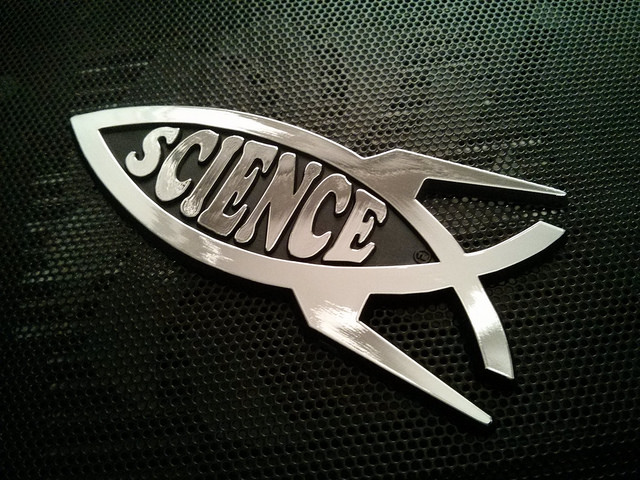By Brian Kaylor
Ninety years ago, the “Scopes Monkey Trial” in Dayton, Tenn., pitted reason against faith and defined the Bible as an opposing perspective to science.
A national media circus erupted as substitute high school teacher John Scopes faced charges for teaching evolution. In the court of public opinion, Christians leading the effort against Scopes lost. The trial loomed over discussions of faith and science for decades.
For the Millennial generation — individuals born in the 1980s and 1990s — all of that seems to be changing.
Ken Keathley, professor of theology and director of the L. Russ Bush Center for Faith and Culture at Southeastern Baptist Theological Seminary in Wake Forest, N.C., said students today are integrating issues of science and religion differently than previous generations did.
“In some ways, Millennials process issues of faith and science differently than, say, Baby Boomers” (those born from 1946-1964), he explained.
“But this is probably how it should be,” he said. “It’s difficult to overstate the impact of discoveries in the past 15 years in scientific fields such as genetics and geology.”
Millennials hungry for information
But the good news is that the empirical case for the reasonableness of theism is as strong — or stronger — today than it’s been since Darwin published his Origins of Species, Keathley said.
“My experience with today’s seminary and college students is that, though they may be open to different approaches to interpreting Genesis 1-2, they recognize the importance of affirming the inspiration and authority of Scripture, the crucial aspects of the doctrine of creation and the essential features of the Genesis account that impact the gospel,” he said.

Hillary Glauser-Patton, who teaches biology at Southwest Baptist University in Bolivar, Mo., sees Millennials as particularly interested in faith-and-science issues with practical impact.
Student feedback shows their “favorite topics are those that are not just theoretical in nature, but are topics that students perceive have provided them with knowledge which can be translated into empowerment to change — either to change themselves personally or to advocate for social change,” she said.
“This generation is very accustomed to having a large quantity of information available to them quickly,” she added. “They want to know the main idea of a story quickly and how it relates to them.”
Understanding the context
Glauser-Patton also serves as director for SBU’s Darrell R. Strait Center for the Integration of Science and Christian Faith. The center seeks to help students integrate science and Christian faith. The idea is to incorporate scientific and biblical principles, grounded in scripture and consistent with the Christian faith, Christian worldview, biblical values and Baptist heritage of the university.
She noted the Strait Center offers courses like “Biology through the Eyes of Faith,” “Chemistry through the Eyes of Faith,” “Math through the Eyes of Faith” and “Physics through the Eyes of Faith.” The center also offers a major and minor in science and faith and hosts an annual campus lecture related to the topic.
“There is not a day when the very small amount that we understand about those topics does not compel me towards worship,” she said.
At Southeastern, Keathley said he also strives to help students navigate issues of faith and science in ways that do not pit the two against each other.
“I try to help them understand the historical context of the faith and science dialogue and the variety of perspectives and approaches that evangelicals have taken and are taking today,” he said.
“Students must know which is non-negotiable and which is more flexible. For example, I argue that there is room for discussion about the age of the earth, but the historicity of Adam and Eve is an essential gospel truth,” he said.
“My hope and prayer is that God will call many Millennials into the STEM fields [science, technology, engineering and math],” he added. “The best way for the kingdom of God to be advanced in the scientific disciplines is for a generation of young Christians to enter into these fields with a deep sense of mission and an overriding desire to glorify God in and through their vocations.”
Seeing things differently
Jonathan Merritt, a Millennial who writes about faith and culture issues, noted that “in America, people of faith tend to believe that religion and science are at odds at a higher number than people outside the United States.”
“America has a very particular religious history,” he said.

In addition to “the ‘Scopes Monkey Trial’ that pitted religion and evolution against one another,” Merritt also noted “we had the rise of the religious right that politicized a large faction of American Christians.
“Suddenly scientific issues were political issues,” he added. “A perfect storm of theological, political and historical realities have brought us to this place.“
Merritt believes many Christians in his generation see things differently.
“I think some of this is fading,” he said. “I think that young Christians have grown up in a world that is postmodern, post-Christian. They do not know a world where you could pray in public schools or where religion was present in an educational system.”
“They have no knowledge of the American culture wars,” he added. “There are many Millennials now who do not see religion and science at odds in the same way as many of their parents did.”
